2023: How independent is INEC?
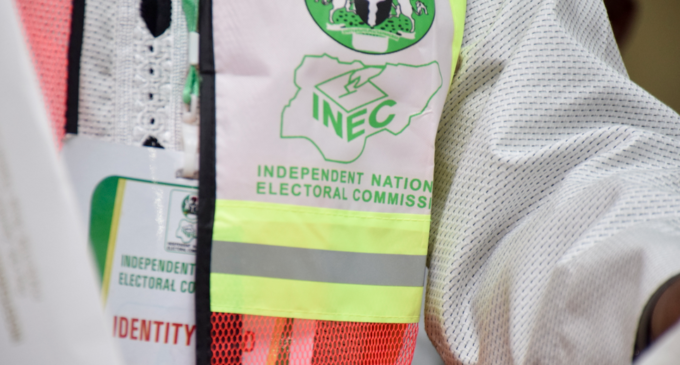
Election, in a democratic setting, remains one of the most scientific, most transparent, and fairest method of leadership recruitment, ever devised by mankind. The credibility of the process is one factor that strengthens its legitimacy in the eyes of those who participate in the process, critical stakeholders in the polity, and even, (international) observers. Moreover, the independent-mindedness of, and the tendency to rigidly adhere to the enabling law, by whomever heads the agency that supervises the process is very key to enhancing its credibility. Therefore, it is expected that, whoever is going to man the institution that would be saddled with the responsibility of midwifing the process must be someone with a high level of independent-mindedness, in addition to being above board.
In the history of Nigeria’s democratisation experiences, record has it that, from Chief Eyo Esua, Victor Ovie-Whisky, Michael Ani, Eme Awa, Humphrey Nwosu, Okon Edet Uya, Sumner Karibi Dagogo-Jack, Ephraim Akpata, Abel Guobadia, Maurice Iwu, Attahiru Jega to the incumbent, and the incumbent, Mahmood Yakubu, who have, at various point in time, been selected or appointed, are people, believed to be of high integrity, morally and professionally. Looking at this roll call of men, who had at one time or the other, served as electoral umpires; reveals a common denominator; and that is, they were believed, rightly or wrongly, to be men with “independence of thought”, in addition to having a healthy measure of integrity. Whoever occupies that office must not be seen as someone who could be tele-guided or pushed around by the political class, or any other person for that matter.
To some of us, “the neutrals”, the result of an election is not as important as the integrity of the process, and that of its conductors. This is because, the credibility, (or lack of it), of the latter two will rub off on the former. But maintaining a credible process, superintended by a person with the aforementioned character traits, is not always easy to come by. Except for two of the above-named individuals who have headed the Nigerian electoral body in our democratisation experiences, almost all of them have been accused (rightly or wrongly) of being in bed with the ruling party in their respective eras. Even the ones who were in office during the various demilitarisation processes, like Sumner Karibi Dagogo-Jack (under General Sani Abacha), were also accused of being puppets in the hands of those who put them in office. Among those who have demonstrated the strength of character in the face of undue interference and intimidation, by the power-that-be, are: Humphrey Nwosu (under General Ibrahim Badamasi Babangida), and Attahiru Jega (under Dr. Goodluck Jonathan). It would be recalled that, on the eve of June 12, 1993, presidential election, Nwosu withstood pressure from a shadowy organisation called, “Association for Better Nigeria” (ABN) led by one Abimbola Davies, backed by late Senator Arthur Nzeribe, believed to be working, cahoots with the military cabal, not to proceed with the conduct of the 1993 presidential election, earlier scheduled for June 12. They relied on a dubiously procured court injunction stopping the National Electoral Commission (NEC) from going ahead, when the D-Day was barely 24 hours away.
Against all the intimidation, the NEC boss proceeded with the conduct of the election, which was presumed to have been won, by late Chief MKO Abiola. It took the “military jackboot diplomacy” for him to stop the announcement of the result, before the criminal annulment of the election. Meanwhile, it was adjudged to be the freest, fairest and most credible election in the history of Nigeria as a nation, on the night 26th of the same month, in a nationwide broadcast by the military Head of State. Still fresh in our memory is the calmness of Professor Jega, when a chieftain of the then, ruling People’s Democratic Party, PDP, and a Minister of Niger Delta, Elder Godsday Orubebe, put up a stunt in the full glare of a global audience when the results of the 2015 presidential election were being collated. Having sensed that the result was not going in favour of his boss, he threatened to obstruct the collation process on the ground of alleged irregularities that tilted the result in favour of APC’s candidate Muhammadu Buhari. But the INEC chairman proceeded with the process, and ultimately announced the result, despite it not favouring the incumbent, after a word of advice for Orubebe.
Before then, Jega had also demonstrated his independent-mindedness, when the Jonathan administration wanted to postpone the presidential election scheduled for February 14 by six weeks, until March 28th 2015, for “security reasons”. Initially, the administration of President Jonathan wanted to hinge the decision to postpone on a purported lack of preparedness on the part of the Independent National Electoral Commission, INEC. But Jega made it crystal clear to the whole world that, INEC, under his watch, was good to go. The federal government would later cite security intelligence as the reason for the postponement. Of course, INEC lacks the power to be confrontational, as it does not have any instrument of coercion or violence to go against the will of the president and the commander-in-chief of the armed forces of the Federal Republic of Nigeria. But he did make it known to the entire world that, he was not in bed with the ruling party.
Following Jega’s exit, many people, especially, chronic optimists like me were expecting his successor, Professor Mahmood Yakubu, to emulate his ways. However each time the occasion arises, we are always left to wonder whether it was an eon ago, since Jega reigned, when Yakubu was not yet born, what with the yawning gap between the two’s styles. He started with “inconclusive gubernatorial elections” in Kogi, then Anambra, Ekiti, Osun, and many elections in other places, which was in stark contrast to the tidy manner in which most of Jega’s elections were conducted. I do not blame the INEC chairman, wholly, for all the shortcomings because, among (at least, the current) Nigerian politicians, you have the most massive assemblage of people who are so desperate for power. They are ready to do anything, even killing, to achieve their selfish interests. But a little demonstration of “testicular fortitude” by INEC boss, in a situation where his resolve as a man and a professional is being tested, would do his reputation no arm. Professor Mahmood Yakubu has not fared well in this regard. I then shudder to ask, how independent is INEC, in the face of all that have been happening in the recent past?
The latest development (extension of deadline), as it affects the conduct of parties’ primary election appears to confirm, rather than debunk, the insinuations that, the electoral umpire is in bed with one of the key groups of contestants, in the colour of the ruling party, All Progressives Congress (APC). It would be recalled that, INEC had fixed June 3, as the deadline for political parties to submit their list of candidates, after the primary elections for various offices must have been concluded. And every party seemed to be running with that deadline, including the major opposition party, the People’s Democratic Party (PDP). But, the ruling APC, decided to start toying with the collective sensibility of Nigerians, by postponing its internal schedule, concerning the conduct of the party’s presidential primaries. Yours sincerely had, all along, been watching, and imagining, what would happen, if APC fails to meet up with INEC’s deadline of June 3. To underscore the source of the party’s inspiration for such nonchalance, President Muhammadu Buhari who incidentally, is the leader of the party, and the person presumed to have the final say on who becomes what in APC, chose to depart Abuja for an African Union three-day Extra-ordinary Summit in Malabo, Equatorial Guinea, according to a statement by the president’s media aide, Garba Shehu, on Thursday, May 27, in Abuja. The president did not return, until Saturday, May 28, and reports have it that he has again, jetted out to Spain as head of an 11-man delegation on a state visit to the European country.
The same INEC that says, it won’t extend the so-called continuous voters registration (CVR) exercise beyond May 30 could easily extend its deadline to accommodate APC’s disdain for playing by the rules of any game in which it participates. Yakubu does not want to be reminded that, a substantial number of Nigerians who will turn 18 between June this year and February next year when the election is scheduled to hold, would be disenfranchised, due to no fault of theirs. Meanwhile, they call the exercise, continuous voters registration. What is continuous in an exercise that is billed to be on hold for more than half a year?
If one, therefore, considers the antecedents of Yakubu’s INEC, it would be very difficult, if not impossible, to convince an apolitical person like me that, it was a mere coincident that, INEC chose to extend the deadline for primaries by six days, on the very day President Buhari left Abuja for Malabo. Due to the puzzling scenario surrounding who the strongest aspirant that could defeat Alhaji Atiku Abubakar in the north and elsewhere is, it is apparent that, the ruling party is in a very difficult situation, regarding how best to handle the issue of their primary election such that it does not shoot itself in the foot; hence the need for INEC to extend the earlier deadline of June 3, to give more room for the party to sort itself out. The insinuations that the extension of the deadline was to enable APC to spy on the opposition PDP, in its choice of candidate, to be able to counter-balance, it, both ethno-religiously and geopolitical, is not misplaced. Anybody who concludes that the supposedly independent electoral umpire (INEC) is in bed with the ruling APC, should be pardoned for this is one coincidence, too many. This is Yakubu’s INEC, still living under the shadow of Jega’s and struggling to carve a niche for itself without much success. It is committing this kind of gaffe at this critical time like this when the body seems to be running so low on credibility in the eyes of many Nigerians. The Independent National Electoral Commission, (INEC) must be independent, not only on paper, but also in the way and manner it conducts its businesses. INEC must not only be independent, but must also be seen to be so, in order not to extinguish, what remains of the little faith the Nigerian populace have in its capacity to conduct a free, fair, transparent and credible elections.
Abubakar writes from Ilorin. He can be reached via 08051388285 or [email protected]
Views expressed by contributors are strictly personal and not of TheCable.







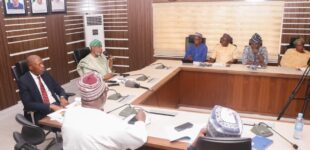
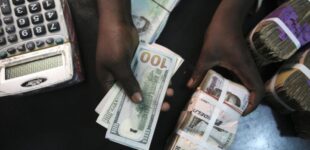
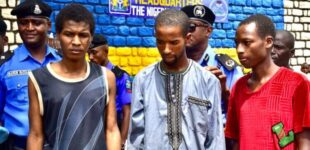
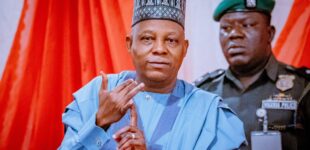
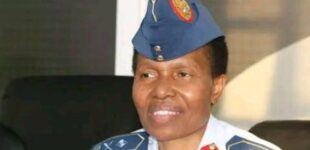
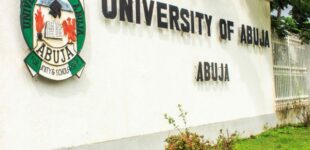
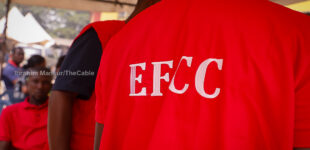
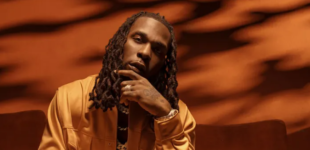

There are no comments at the moment, do you want to add one?
Write a comment